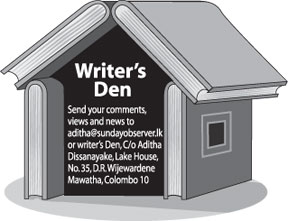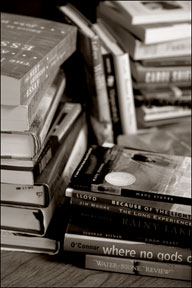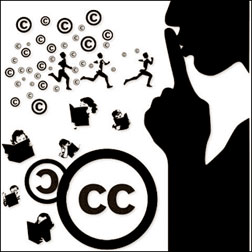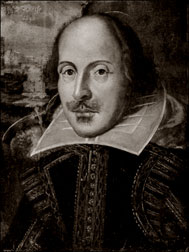
The debate continues…
Sinhala writers write in English due to an inferiority complex
Response to Dr. Gunadasa Amarasekara’s accusation:
By Bohodeva
[email protected]
|

English - a medium of communication
|
Dr. Gunadasa Amarasekara first commented to a weekend Sinhala
newspaper, on the inferiority complex of the Sinhala writers writing in
English, and then he elaborated on it in the Sunday Observer of April
6th. He says that a writer must communicate with the people of his
country in his own language. He also says that a writer cannot address
the universe.
It is difficult to fathom the motive behind Dr. Amarasekara’s
statement, because he should be well aware of the use of English as a
medium of communication in the first place, and then also that we are
today living in what is called a ‘Global Village’, with an information
network covering our universe.
According to him only a writer born in a country where his ‘mother
tongue’ also happens to be an international language could write to the
universe. Our ‘mother tongue’ happens to be used only in our small
island. Should we limit our writing, sharing our thoughts and creativity
only with our own people?
In India there are 415 living languages listed, which happen to be
the mother tongues of so many different groups of people living within
India.
Going by Dr. Gundasa Amarasekara’s argument, all these people should
write only in their mother tongues, to be read by only their own people,
even if the total population speaking some of these languages were less
than a 100,000.
More than half the languages in the world are spoken by less than
6000 people. These people too have all the right to write only in their
mother tongue, even if such writing could be read by a few thousand.
Is this what we want today? Most of the conflicts among human beings
are caused by language differences and communication failures. It also
affects business and industry around the world.
If the people in China could have been able to use English as
fluently as the people in India, by now they would have become one of
the most rich and powerful countries in the world.
China has advanced in industry, technology and business so fast
butthey have a very serious drawback because they do not have people who
could communicate with the businessmen in other countries in any other
international language.
That is why we have to seriously look at a global language if we are
to live in a global village. A universal language so we could
communicate with all the people on earth. That could help to resolve
most of the ongoing conflicts, unwanted wars and terrorism and someday
could lead us to a universal religion too.
It is true that we have to preserve our mother tongue. We cannot let
our mother tongue die. But we also have to let our children learn at
least one or two more languages, which have a wider usage, even if they
could be labelled as ‘Prestige languages’. Our children will be the
children of the ever expanding Global Village and they have to learn one
or more global languages to be a part of it.
Unless we decide to live like a ‘frog in the well’, this is how this
issue has to be looked at. Another question that comes to mind is why
should we have such restrictions only for writing?
There are no such barriers for a painting, a piece of music or dance
or a sculpture. No one tells an artist that he should use and share the
experience of his motherland, with the people of his motherland only.
Sigiriya was created by our own artists, but today it is admired and
appreciated by the whole world. The same should apply to our creative
writing too.
Dr. Amarasekara is once again putting forward the bogey of
‘colonialism’. It is unfortunate that a writer of such high regard as
Dr. Gunadasa Amarasekra has to hide behind such empty words. If by
‘colonialism’ he means foreign invaders, then where do we draw the line?
Do we limit it to the British only, or all the Europeans, or do we go
further back in history and include the Indian invaders too?
If writing in English could ruin our native cultural values, then so
would all the translations of foreign novels which are fast spreading
among our readers. It would be more disastrous than our own creations in
English. In such translations, we are at least aware that we are reading
about other countries, other cultures.
However, when our own Sinhala writers bring our fiction based in our
country, among our people, but under the influence of decadent western
writers, they have to be considered as crimes against our people and our
society, because the Sinhala reader would tend to believe that these
novels are based on our own culture and happenings among our own people.
He has not mentioned about Sinhala writers writing both in English
and Sinhala, or about Sinhala books which have been translated into
English. He could always say that Yasmine Gooneratne’s novel was
shortlisted for the Commonwealth and Dublin Awards as a part of the
neo-colonialist’ campaign, but how about Sinhala novels or short stories
which have won International awards or recognition through their English
translations?
Even though Dr. Amarasekara is against the teaching of English to our
children, and against the use of the English medium in our universities,
we have to realize that if not for English literacy, we would not have
access to Western Medicine, we would not have Doctors and and Engineers,
we would not have access to most of the new technologies, we would not
have access to the World Wide Web and the Global village.
That all this could be achieve in our own language is only a wild
dream of fanatics and the vile carrot used by politicians.
Or is it that what was good for us is not good for our children, or
it is not good for other children, but not our own?
I do not know if Dr. Gunadasa Amarasekara would be reading the Sunday
Observer because it is published in the English language, and also if he
would care to reply, because then he has to write in English. If he
could write, then he could really enlighten us on what he meant by his
comments and correct us if we have misunderstood him.
Seminar on Poetry and Short Story Writing
The English Writers Cooperative of Sri Lanka (EWC) invites those
interested in poetry and short story writing to a seminar on Saturday,
May 31st, 2008 at the auditorium of the Sri Lanka Federation of
University Women at Kitulwatte Road, Colombo 08 from 8.30 a.m. to 4.30
p.m.
The sessions will be conducted by University academics who will take
the participants through the process of writing poetry and short stories
from the basics with lectures, discussion and comment.
Participation is limited to 30 on a first come first served basis.
the seminar fee is Rs. 500/- per participant and should be sent along
with the application by May 15, 2008. The fee should be in cash or by
cheque made out to the English Writers Cooperative of Sri Lanka. No
money or postal orders will be accepted. Applications should be sent by
registered post to Ms. Vijita Fernando, 572/10 Welikadawatte Road,
Rajagiriya. The first 30 will be sent details.
Time for copyleft?
|

Copyleft: is a play on the word copyright and is the practice of
using copyright law to remove restrictions on the distribution
of copies and modified versions of a work for others and require
the same freedoms be preserved in modified versions. Any work
under ‘copyleft’ you can copy, download or acquire free of
charge, but you have to pass it on as a free work, as it is or
with your additions and modifications. |
As the world celebrated World Book and Copyright Day on April 23,
2008 (the day on which three great authors had breathed their last
Cervantes, Shakespeare and Inca Garcilaso de la Vega) it was hard not to
wonder when UNESCO will introduce a day for Copyleft.
Judging by the popularity Copyleft is gaining in the world of arts it
seems not too far away when there will be a day to commemorate Copyleft
as well. If so whose birthday would it fall on? Keep your fingers
crossed. Could be yours.
When I viewed these thoughts aloud during the commercial break of the
eight O’ clock news bulletin three days ago my father came up with a
unique question. “Is there a Sinhala word for Copyright?” I could not
think of one. Instead of elaborating further, as usual he suggested I
read more about it and showed me a host of books and newspaper articles
he had collected on the subject.
Rummaging through them I found an article he himself had written to a
newspaper now defunct and decided to use it , adhering to the Copyleft
concept here on Writer’s Den too.
“In Sri Lanka we do not have a Sinhala term for ‘copyright’. Could it
be that our writers and creative artists in the past were not concerned
about the rights of their creations, because they believed the creations
belonged to the people? Could it be that they believed that knowledge is
something spread across the universe and did not belong to any
individual.
 Most of the knowledge we have gathered, came to us from our elders or
our teachers. We also gather knowledge by our own search through the
universe. But for us to find such knowledge it should be available
around us. Most of the knowledge we have gathered, came to us from our elders or
our teachers. We also gather knowledge by our own search through the
universe. But for us to find such knowledge it should be available
around us.
Then we do not have a right to claim it as our own. It would apply to
all research and discoveries and inventions. Electricity is developed by
utilizing the power from the sun, directly or indirectly. We have to
appreciate and honour the discovery, but no one should hold the rights
to that discovery.
The same would apply to the artist. It was his talent and his
creativity which produces the new creation. But it would not be 100% his
own creation. Any creation today would contain the thoughts, feelings
and findings of all humans who have lived through the ages, and
everything in his surroundings would also have contributed to this
creation. We have to appreciate and honour the new creation, but no one
should hold the exclusive rights to it.
Probably that was the reason why our artists and writers did not
charge a fee for what they created, or sold their creations. There are
no records about copyright in our literary history. Often there are no
records even of the name of the creator. We do not know who created the
Sigiriya frescos, the magnificent carvings in Anuradhapura or
Polonnaruwa, but we will continue to hold these unknown artists in the
highest esteem.
Probably most of the great epics and works of art and sculpture would
have been collective or interactive works. The story or poem when first
recited would be improved upon by the first creator, based on the
reaction of the listeners. It could be changed, modified, added on by
the listeners, when they repeated it to others. That is how they had
developed into such great works.
In a culture where copyright was of no importance, there would never
be a need for ‘copyleft’. Yet the time has come for ‘copyleft’ because
we have better means of sharing our knowledge and our creations through
electronic media, through the World Wide Web. This opens the doors to a
whole new world of creative activities. This could lead to the creation
of great works like the Ramayana or Mahabharata, because a work created
by one person could be improved on by others, it could lead to the
interactive novel, drama, poem, even works of art. Most important, it
would be the first step in making all information in the universe be
available to everyone.”
On a personal note it is heartening to note the postman is fast
becoming a frequent visitor to Writer’s Den bringing epistles from as
far away as Bangalore, Toronto and Queens, New York. Not to mention the
thank you note from Matale sent by Lionel Yapabandara and the long
letter brimming with love and warmth from Jean Arasanayagam.
As the resolutions made for the New Year just dawned begin to wane
Writer’s Den is determined to make every effort to serve the scribes of
our land better; with great reviews, interesting articles and beguiling
debates. To ensure I get it right though, I need to hear about what you
want. So please write or email to me at the above address. Share your
views.
- Aditha
Why do we write?
by Yudhanjaya Wijeratne
I read Dr. Amarasekara’s views in the Sunday Observer Features, and
wish to say I disagree with his views.
Writing in English has nothing to do with an inferiority complex. Why
do we write? To make our voice heard. We cannot address the universe,
but we can address the world; one does one’s best. And when we address
the world we must use the language of the people of the world. What is
that language? Surely not Sinhalese. It is English.
The majority of the world understands it. It opens our ideas to wider
audiences than just Sri Lanka alone. Sinhala is a very powerful
language; but is it an international language? Is it a global language?
Unfortunately, no. Which is why we write in English, the language of the
world.
We as writers cannot address the universe, but we can step beyond our
little country and address the world. You don’t have to be the Pope to
do this. J. K. Rowling addresses more people than the President of the
USA. (Need I remind you that we Sri Lankans can read her works because
she writes in English? If she wrote in Celtic or Gaelic, would we be
able to read Harry Potter?)
And so; we write in English to address the world, not because we
suffer from an inferiority complex. To address the world we must use the
language of the people of the world.
We speak English better than the British
By J. Kaval writing from Bangalore
In response to the write up in Writer’s Den I wish to differ with the
thinking of Dr. Amarasekara. My mother tongue is Malayalam. I speak and
write in that language. I am proud of that. During the seventies I
realized that I should write also in English if I wanted to convey my
ideas to the world at large. I cannot become a Pope or a US Prez, I
cannot learn all the major languages in the world,though I wish to.
I do not want to die in a Malayalam well. I know: English language is
the common heritage of the people of the world, not the private property
of the British. Indian English is a self standing language , and by
experience, I know we Indians spoke English better than the British.
Currently Indian English is undergoing a sea change coupled with
email-languages, ‘Vat’s ur nam? Thanq, givme ur foto, Vat akademy?’ How
do I enjoy Dr. Amarasekara’s short stories? Either I learn Sinhala or
Dr. Amarasekara should write his story in English as well.
(The writer is the Editor - Publisher of Katha Kshetra an
international literary quarterly published in Bangalore)
How well do you know him?
By Myriam Gabriel-Pollock
 Most of us are familiar with at least a few of the works of William
Shakespeare — perhaps the most celebrated English playwright and poet in
modern history. We recognize many of his more famous characters, such as
Macbeth, Romeo and Juliet, Lady Ophelia and Hamlet. But how much do we
know about the world he lived in? How did he become famous? Who were his
contemporaries? What was the theatre experience like back then? If
thouest taketh our Shakespeare’s World Quiz, thou mayest find thine
answers. Most of us are familiar with at least a few of the works of William
Shakespeare — perhaps the most celebrated English playwright and poet in
modern history. We recognize many of his more famous characters, such as
Macbeth, Romeo and Juliet, Lady Ophelia and Hamlet. But how much do we
know about the world he lived in? How did he become famous? Who were his
contemporaries? What was the theatre experience like back then? If
thouest taketh our Shakespeare’s World Quiz, thou mayest find thine
answers.
1. Shakespeare composed his plays during the reigns of which two
English monarchs? a) William III and Anne b) Henry VIII and Edward VI c)
Elizabeth I and James I d) Victoria and Edward VII
2. The Globe Theatre in London, where many of Shakespeare’s most
famous plays were first performed, was destroyed by fire in 1613. How
did the fire start? a) A theatre patron accidentally dropped his lit
pipe into a bale of hay. b) A cannon discharged during a performance of
“Henry VIII” set fire to the thatched roof. c) A Puritan arsonist set
fire to the wooden stage. d) The building next to the theatre was on
fire, and the flames spread to the Globe.
3. Which gifted contemporary of Shakespeare wrote the masterpiece
“The Tragical History of Doctor Faustus,” and was stabbed to death in a
tavern brawl? a) Robert Greene b) Thomas Nashe c) George Chapman d)
Christopher Marlowe
4. Shakespeare’s poetry, not his plays, reached print first.
a) True b) False
5. English poet and dramatist Ben Jonson’s first original play,
“Every Man in His Humour,” was performed in 1598 with which man as a
cast member?
a) Thomas Dekker b) John Marston c) William Shakespeare d) Sir Walter
Raleigh
6. At the Globe Theatre, members of the general public paid 1 penny
apiece to watch the play while standing in the yard or “pit.” These
attendees had several nicknames, including “commoners,” “groundlings”
and:
a) Penny-pinchers b) Stinkards c) Cheapskates d) Belly-itchers
7. This English actor — considered to be the first great English
theatre performer — gave life to many leading Shakespeare roles,
including Hamlet, Lear, Othello and Richard III. Who is he? a) Richard
Burbage b) Joseph Taylor c) Nathan Field d) Edward Alleyn
8. In which picturesque English town was Shakespeare born? a)
Crickhollow b) Stratford-upon-Avon c) Little Whinging d) Wotton-under-Edge
9. Queen Elizabeth was a leading patron of the theatre, and attended
the Globe’s performances so frequently that she and several other
aristocratic patrons had specially designated royal seats right in front
of the stage.
a) True b) False
10. Two fellow actors and friends of Shakespeare, John Heminges and
Henry Condell, collected 36 of his plays into a 900-page book known as
the First Folio. In what year was it published? a) 1608 b) 1611 c) 1616
d) 1623
Answers 1 (C), 2 (B) 3. (D) 4. (A ) 5 (C) 6 (B) 7 (A) 8 (B) 9. (B) 10
(D) |
